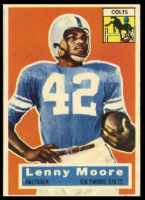1960 Topps Metallic FB Sticker # 6 Green Bay Packers
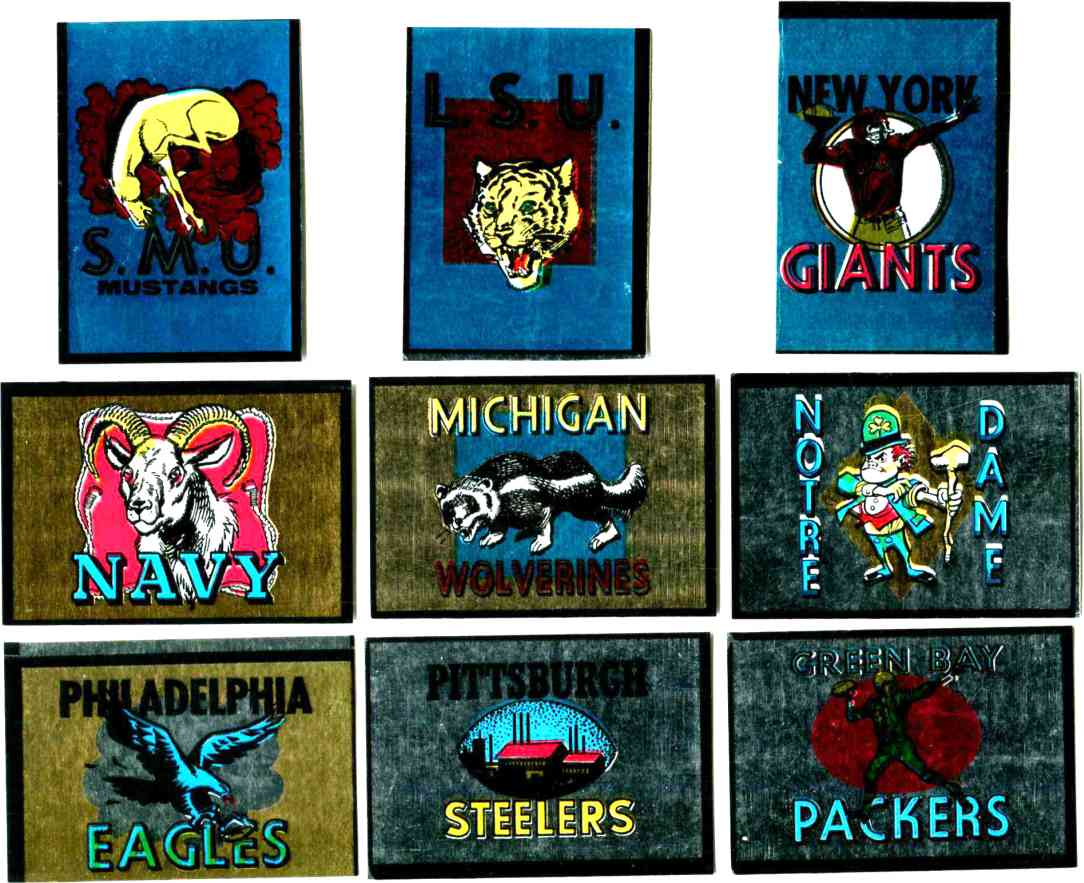

Please wander around the website for more info, prices, values & images
on vintage baseball, football, basketball, hockey, sport and non-sports cards.
Autographed 1961 Topps Baseball Cards |

1953 Topps Baseball Cards |

1956 Topps Football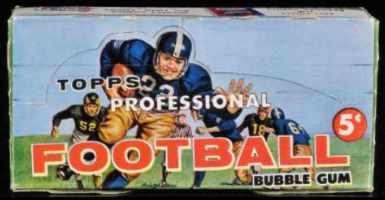 After they acquired Bowman, Topps issued its first NFL licensed
football set issuing (120) brightly colored cards.
Team cards were a nice new addition to the earlier Bowman offerings.
Also issued was a checklist and (5) special contest cards.
Most of these special cards were either tossed away or sent in
to win prizes making them quite difficult to find.
After they acquired Bowman, Topps issued its first NFL licensed
football set issuing (120) brightly colored cards.
Team cards were a nice new addition to the earlier Bowman offerings.
Also issued was a checklist and (5) special contest cards.
Most of these special cards were either tossed away or sent in
to win prizes making them quite difficult to find.
Like its early 1950's baseball issues, these cards measured in at 2-5/8" x 3-3/4", sligtly larger than the regular modern issued cards.
Each team had (9) player cards and the team card.
To make the number of cards work with the card-sheet size,
Topps printed all the cards twice on each sheet, EXCEPT the
Washington Redskins and Chicago Cardinals who were short
printed (single printed)and are more difficult to find.
Note: You may be on that page right now. |

Starting approximately in 1886, sportscards, mostly baseball cards, were often included with tobacco products, for promotional purposes and also because the card reinforced the packaging and protected cigarettes from damage. These sports cards are referred to as tobacco cards in the baseball card hobby. Over the next few years many different companies produced baseball cards. Tobacco cards soon started to disappear as the American Tobacco Company tried to develop a monopoly by buying out other companies.
They were reintroduced in the 1900s, as American Tobacco came under pressure from antitrust action and Turkish competition. The most famous and most expensive, baseball card is the rare T206 Honus Wagner. The card exists in very limited quantities compared to others of its type because Wagner forced the card to be removed from printing. It is widely (and incorrectly) believed that Wagner did so because he refused to promote tobacco, but the true explanation lies in a dispute over compensation.
Soon other companies also began producing baseball and football cards. Sports magazines such as The Sporting News were early entries to the market. Candy manufacturers soon joined the fray and reflected a shift toward a younger target audience for cards. Caramel companies were particularly active and baseball cards were one of the first prizes to be included in Cracker Jacks. World War I soon suppressed baseball card production.
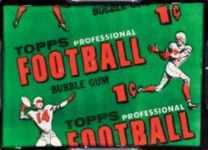
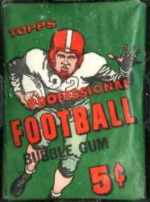 Top Rookies: Lenny Moore, Roosevelt Brown, Joe Schmidt, Bill George...
Top Rookies: Lenny Moore, Roosevelt Brown, Joe Schmidt, Bill George...
